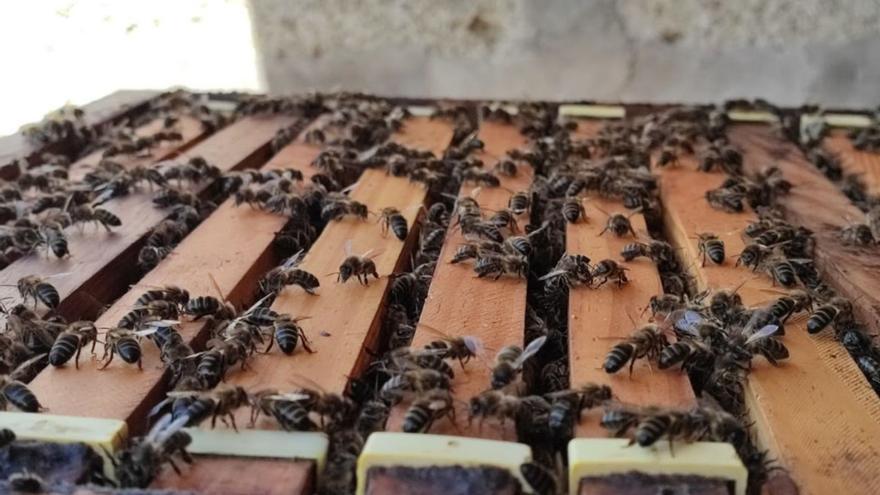
Canary Islands Government, Cabildo and the Ministries of Agriculture, Fisheries and Food, as well as of Ecological Transition and Demographic Challenge have not responded to the proposal to promote the declaration of Tenerife as a single reserve for the protection, conservation, recovery and selection of the Canarian black bee. It is assured by the group that brings together beekeepers in the Canary Islands, Crianca, whose president, Juan Vicente Morales, announces that “a series of legal and administrative measures will be initiated” for this reason.
March 16 was when the Canarian Black Bee Breeders Association officially presented the initiative, with the support of 1,500 signatures (today they are over 2,200) and the institutional support of municipalities such as Granadilla de Abona, San Miguel de Abona, Arona, Adeje, Guia de Isora and Santiago del Mount Teide. The objective is “to achieve the protection, conservation, recovery and selection of this unique and native species, which is in serious danger of extinction.”
Canary black bee breeders understand that “The authorities have not complied with the regulations, nor with the current legislation, which forces them to act and promote the creation of the regulations that are demanded from Crianca to protect our Canarian black bee”. Juan Vicente Morales describes as “shameful, unfair, despicable, reprehensible… it would be an understatement when it comes to qualifying the incapacity, pettiness, incompetence and lack of scruples of the leaders and politicians who misgovern us.”
The fact that the authorities did not respond to the proposal leads Crianca to announce that “a series of legal and administrative measures will be initiated to protest against this lack of respect for citizens and against the breach of the obligations of the authorities.” , adds the association.
Juan Morales argues that the bee “is considered the most valuable insect for humans and nature, as a fundamental link in the food chain.” Thanks to their pollination work, guarantees more than 40% of food production and 80% of plants depend on this process. It is the first link of life, the most studied and the least known. “It is clear that public institutions are not going to do anything about it,” reflects the president of Crianca.
In the last 20 years, due to the contact of island beekeeping with that of other latitudes, as well as the installation, in the past, in the Canary Islands of business initiatives related to bee breeding, there has been the arrival of selected specimens belonging to to other breeds, for productive purposes.
The existence of beekeeping operations of foreign breeds in Tenerife generates the hybridization of our local breed, which translates into more aggressive bees in the short term and a continuous deterioration of their purity and their extinction in the medium term. “The Canarian black bee is part of our heritage and it is our duty to protect it. In this sense, we are far behind La Palma, Gran Canaria, Lanzarote and Fuerteventura, where there is already legislation like the one we are demanding.
The main objective of the Canarian Black Bee Breeders Association is the protection, conservation, recovery and selection of this endemism.















